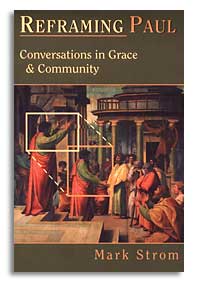Passive or Active?
…out of this crucible of failure and pain, a new Thomas Kelly arose, one who genuinely floated in the grace of God with a simple and childlike obedience and trust. This renewed Thomas Kelly is the one whose teaching and example have gained wide attention. Yet all of Kelly’s works represent a reaching for the same simple and pure devotional understanding.
In the following selection, which is taken from his masterwork, A Testament of Devotion, notice that he suggests some will be swept into holy obedience and some will have to wrestle for it…
Do not mistake me. Our interest just now is in the life of complete obedience to God, not in amazing revelations of His glory graciously granted only to some. Yet the amazing experiences of the mystics leave a permanent residue, a God-subdued, a God-possessed will. States of consciousness are fluctuating. The vision fades. But holy and listening and alert obedience remains, as the core and kernel of a God-intoxicated life, as the abiding pattern of sober, workaday living. And some are led into the state of complete obedience by this well-nigh passive route, wherein God alone seems to be the actor and we seem to be wholly acted upon. And our wills are melted and dissolved and made pliant, being firmly fixed in Him, and He wills in us.
But in contrast to this passive route to complete obedience most people must follow what Jean-Nicholas Grou calls the active way, wherein we must struggle and, like Jacob of old, wrestle with the angel until the morning dawns, the active way wherein the will must be subjected bit by bit, piecemeal and progressively, to the divine Will.
Read more:
Testament of Devotion, Thomas R. Kelly
http://www.bullartistry.com.au/pdf_bestill/010BeStill.pdf



























